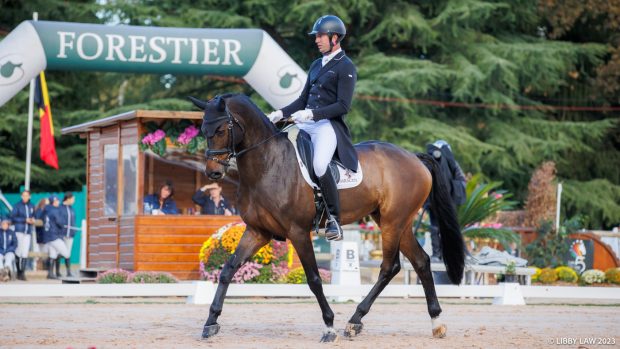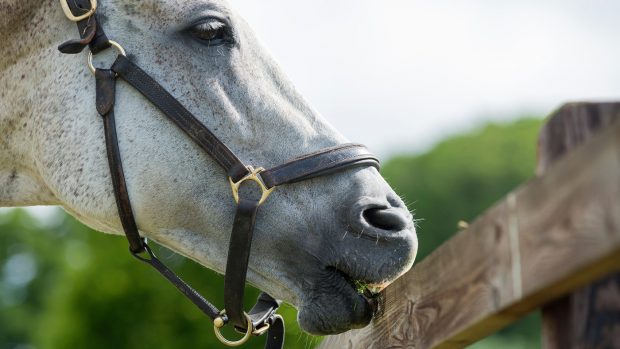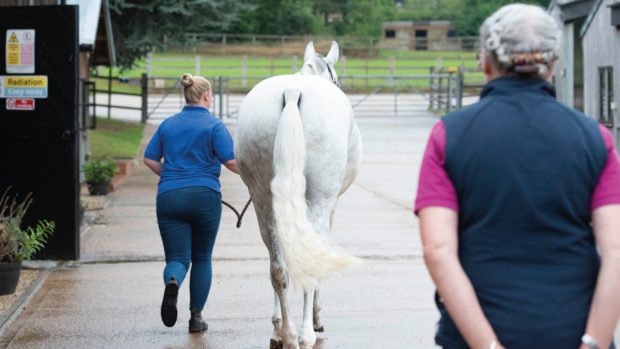Owners of horses with gastric ulcers are not doing enough to manage the condition, a research project has indicated.
Responses to an online questionnaire showed that although there is awareness of the key ways of managing horses with ulcers, some of these methods are not being widely used.
Of the 267 people who took the survey, 61% knew or suspected that their horses were suffering from equine gastric ulcer syndrome (EGUS).
When asked about key prevention methods, 96% were aware of feeding high levels of fibre or forage, 91% knew plenty of turnout is important and 84% knew feeding a double handful of chaff 20 minutes before exercise will help reduce acid splash.
But while 67% of respondents who believed their horses had EGUS had increased access to hay or fibre, only 55% were feeding chaff before work.
It is understood avoiding feeding cereals and starch is beneficial as these generate increased acidity in the stomach, but only 38% said they had cut these out of their horses’ diets.
“While we fully understand that some EGUS management techniques are not within everyone’s power to deliver, feeding before exercise is quite easy to do, and reducing starch is universally recognised as being essential for managing EGUS,” said Katie Williams of feed manufacturer Dengie, which commissioned the research.
“I’d certainly hope to see both of these strategies used more consistently.”
EGUS affects roughly 40% of leisure horses, 60% of competition horses and up to 90% of racehorses.
Dengie said it was “impressive” that 83% of respondents knew different types of ulcers affect the different regions of the stomach; the glandular and squamous areas.
Continues below…

Gastric ulcers: understanding what is fact and what is fiction
An alarmingly high proportion of competition horses are being diagnosed with stress-related gastric ulcers, but what are the facts?

Gastric ulcers in horses: the important facts every owner needs to know
“This is important as we are really only just starting to understand the factors that contribute to the problem and how to manage it,” said a Dengie spokesman.
“Our next steps are to investigate why more horse owners than we anticipated are not implementing all the recommendations for feeding and managing horses with EGUS.”
For all the latest news analysis, competition reports, interviews, features and much more, don’t miss Horse & Hound magazine, on sale every Thursday.





